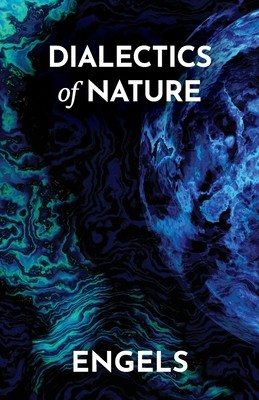
- Išsiųsime per 10–14 d.d.
- Autorius: Frederick Engels
- Leidėjas: Wellred
- Metai: 2012
- Puslapiai: 410
- ISBN-10: 1900007452
- ISBN-13: 9781900007450
- Formatas: 14 x 21.6 x 2.6 cm, minkšti viršeliai
- Kalba: Anglų
- Extra -20 % nuolaida šiai knygai su kodu ENG20
Atsiliepimai
Aprašymas
Dialectics of Nature is one of the classics of Marxist liturature. Engels, analysing the advances of science, demonstrates how dialectical materialism, the philosophy of Marxism, corresponds to the very way in which nature unfolds. The revolutionary advances of nineteenth century science, most notably the discovery of the cell, the law of conservation and transformation of energy, and Darwinian evolution, provided the material basis for a dialectical understanding of nature. For Engels, the dialectics of human history grew out of the dialectics of nature. Throughout the work, Engels battles with various unscientific schools of thought prevalent among scientists, especially idealism and vulgar materialism. Dialectics of Nature deals more fully than any other work of Marxism with such problems and categories of dialectics such as causality, chance (freedom) and necessity, relationship of induction and deduction, and many more. Even though unfinished, this outstanding work is amazing for its rich and profound theoretical content. Despite certain aspects being obsolete, notably some factual data and timescales, resulting from the prevailing state of natural science at that time, the general method and conception of the book remain valid today. The book also contains Engels' brilliant essay, The Part Played by Labour in the Transition from Ape to Man, which explains how and by what means our species originated. It has been described by Richard Levins and Richard Lewontin as capturing "the essential feature of human evolution."
EXTRA 20 % nuolaida
Kupono kodas: ENG20
Akcija baigiasi už 1d.16:19:57
Nuolaidos kodas galioja perkant nuo 10 €. Nuolaidos nesumuojamos.

- Autorius: Frederick Engels
- Leidėjas: Wellred
- Metai: 2012
- Puslapiai: 410
- ISBN-10: 1900007452
- ISBN-13: 9781900007450
- Formatas: 14 x 21.6 x 2.6 cm, minkšti viršeliai
- Kalba: Anglų
Dialectics of Nature is one of the classics of Marxist liturature. Engels, analysing the advances of science, demonstrates how dialectical materialism, the philosophy of Marxism, corresponds to the very way in which nature unfolds. The revolutionary advances of nineteenth century science, most notably the discovery of the cell, the law of conservation and transformation of energy, and Darwinian evolution, provided the material basis for a dialectical understanding of nature. For Engels, the dialectics of human history grew out of the dialectics of nature. Throughout the work, Engels battles with various unscientific schools of thought prevalent among scientists, especially idealism and vulgar materialism. Dialectics of Nature deals more fully than any other work of Marxism with such problems and categories of dialectics such as causality, chance (freedom) and necessity, relationship of induction and deduction, and many more. Even though unfinished, this outstanding work is amazing for its rich and profound theoretical content. Despite certain aspects being obsolete, notably some factual data and timescales, resulting from the prevailing state of natural science at that time, the general method and conception of the book remain valid today. The book also contains Engels' brilliant essay, The Part Played by Labour in the Transition from Ape to Man, which explains how and by what means our species originated. It has been described by Richard Levins and Richard Lewontin as capturing "the essential feature of human evolution."




Atsiliepimai